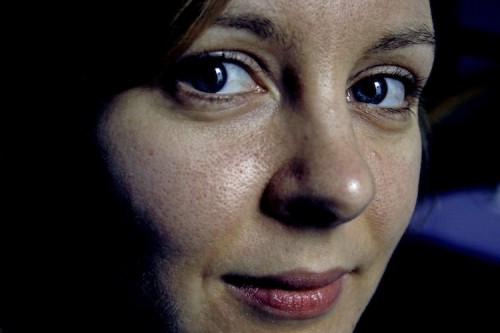Ahead of her summer one-day workshop on The Poetry of Dictionaries, we caught up with Kate Potts to find out what students can expect.
JT: Hi Kate. Thanks for answering a few questions for us! So New Definitions and Neologisms: The Poetry of Dictionaries – it’s quite a workshop title! Can you tell us a little more about what you’ll be fitting into the day of teaching?
KP: We’ll be using dictionaries as a way in to thinking about definition, meaning, and the power of language. In some of Derek Walcott’s poetry, Adam in Eden is compared to the figure of the poet – someone whose task it is to give things their names. In my workshop we will be looking at the recent spate of definition-focused work from poets like Kei Miller, Solmaz Sharif, and Sarah Howe, and writing some new definitions of our own. We’ll also think about newly-coined words, dialect words, and words no longer in use – words that might not be included in a standard English dictionary. How does weaving these words into our poems impact on our work and on how it’s read? Lastly, we’ll be talking about and writing poetry that uses dictionary-related procedures and constraints to take some of the authorial choice and intention out of writing. Using the dictionary as a sort of source text, this kind of activity can create some really playful and unexpected results.
JT: The internet and technology has created a vast number of neologisms. Are you in favour of experimenting with these new words in poetry? Or is that something only a n00b would do?
KP: I would never rule any words out! But as usual, context is hugely important. The vocabulary needs to make sense within the world and logic of the poem.
JT: Can you tell us a little more about Oulipian writing? And who are some of your favourite poets and poems we should be looking out for?
KP: OULIPO stands for Ouvroir de Litterature Potentielle (or workshop of potential literature). It was a movement founded in 1960 by a mathematician, Francois de Lionnais, and a writer, Raymond Queneau. They aimed to create new literature using predetermined formulas and procedures to choose and arrange the words. One of the most famous of these procedures is N+7, where you take a poem or text that already exists and substitute every noun for the noun listed seven nouns further on in the dictionary. You can have a go at this using The N+7 Machine here: http://www.spoonbill.org/n+7/.
Haryette Mullen’s Sleeping With the Dictionary and Christian Bok’s Eunoia both use Oulipan constraints. I’m also really interested in the work of Jackson MacLow, who uses lots of procedures in his poetry, some of them dictionary-related. Whether or not you like the idea of giving up the composition of your poem to the relative randomness of a predetermined constraint, I think this sort of writing can encourage us to think about how language functions, and can also help to generate some really surreal, strange new ideas and new work.
JT: We hear you’ve just finished your PhD. Congratulations! Can you tell us a little about it? (Or do you never want to think of it again?)
KP: Thanks very much! I’ve passed the viva now but I still have some (minor) corrections to write. My PhD is a critical and creative writing PhD on the multi-voice poetic radio play. I’ve developed a model of the multi-voice poetic radio play as a distinct sub-genre that functions differently to prose drama, or to single voice radio poetry. Some key influences I’ve written about are the oral epic (the Odyssey in particular), a mythic trope known as nekuian katabasis – in which the hero consults their dead ancestors, and the radio feature, which developed out of radio news and documentary and was initially particularly concerned with representing the voices and experiences of the listeners. The plays I studied are all interested in how communities are constructed and maintained through language. I also wrote my own radio play script, in which one of the characters is a dictionary.
JT: Your debut collection was published in 2011. Have you come out of the PhD with lots of creative work for a new book?
KP: I was writing a radio play script rather than a poetry collection, so I’ m hoping that the play will be produced at some point. I was studying part-time for my PhD and I’ve managed to find some time in between working and studying to write individual poems too. I’m going to include some reworked excerpts from the play script in the new collection, which is due to be published in 2018. There are also a few dictionary poems, and quite a few poems that focus on voice and voices. The PhD has been a really useful way of thinking about what it is I’m trying to do more generally in my poetry, as well as exploring radio poetry.
 Kate Potts is a London-based poet and lecturer. Her pamphlet Whichever Music (tall-lighthouse, 2008) was a PBS Choice and was shortlisted for a Michael Marks Award. Her first full-length collection is Pure Hustle (Bloodaxe, 2011). Kate teaches for Oxford University, Royal Holloway and The Poetry School.
Kate Potts is a London-based poet and lecturer. Her pamphlet Whichever Music (tall-lighthouse, 2008) was a PBS Choice and was shortlisted for a Michael Marks Award. Her first full-length collection is Pure Hustle (Bloodaxe, 2011). Kate teaches for Oxford University, Royal Holloway and The Poetry School.
For more information and to book on to New Definitions and Neologisms: The Poetry of Dictionaries visit the course page
Add your Reply
You must be logged in to post a comment.